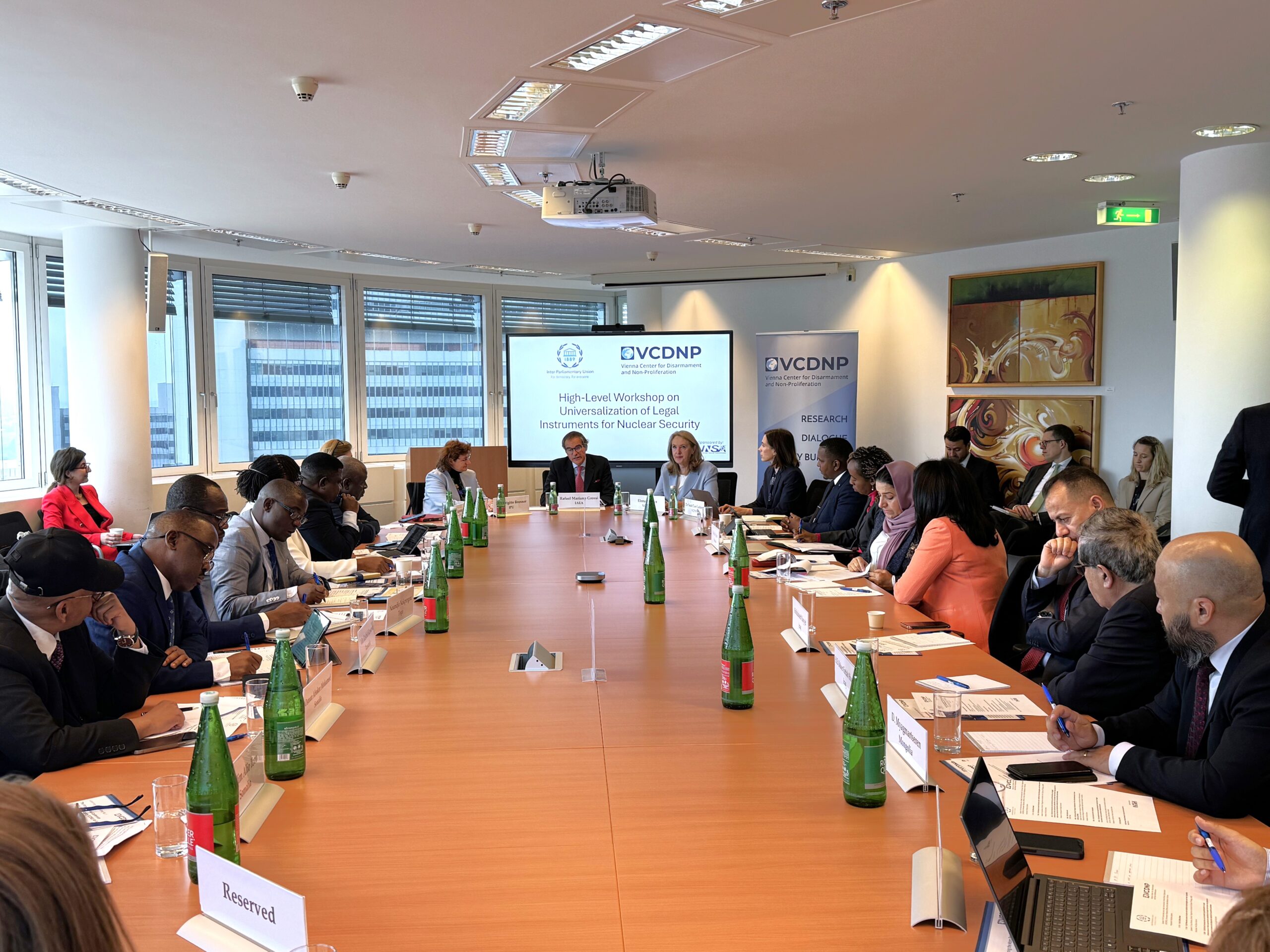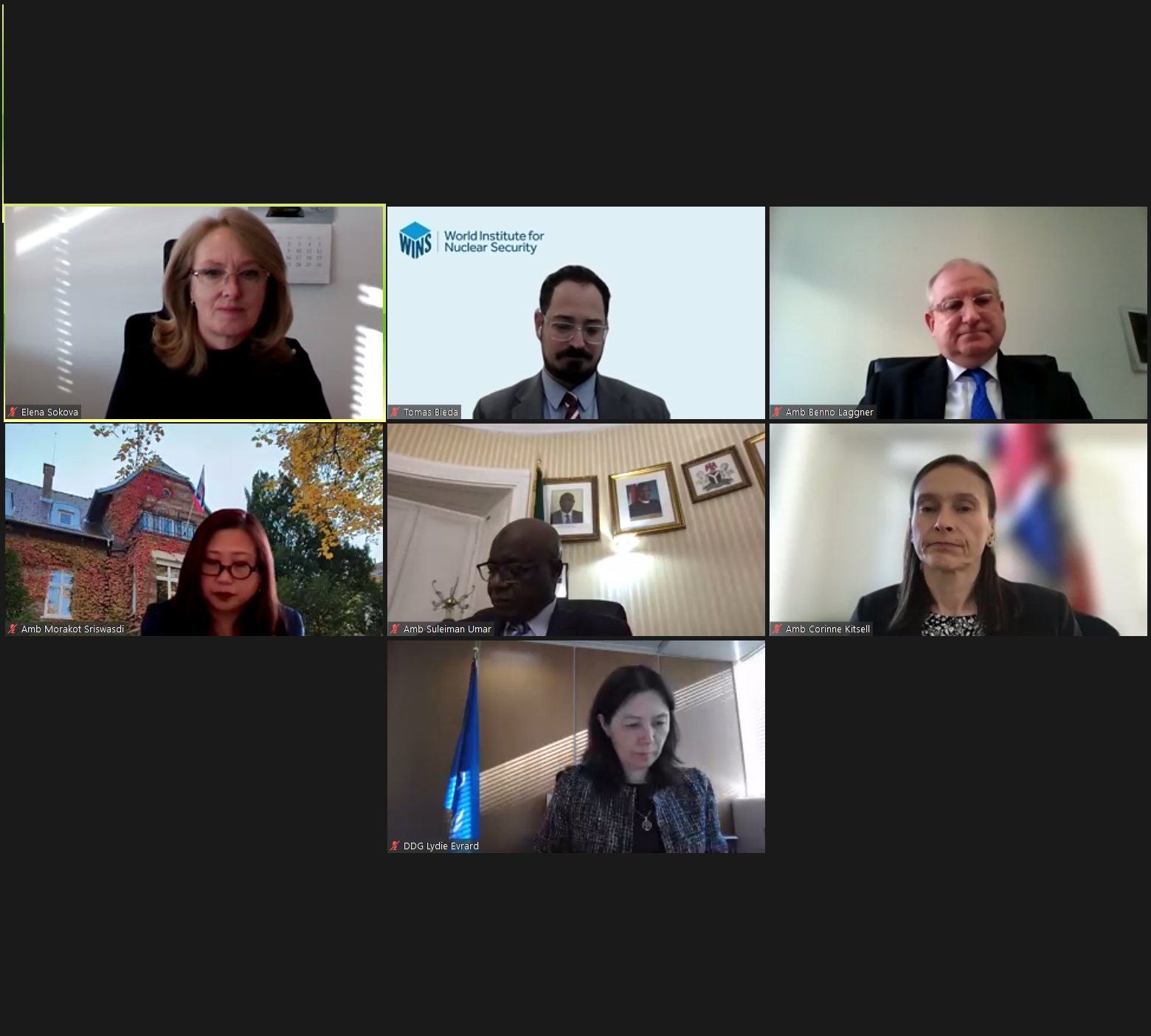

On 14 April 2021, VCDNP Research Associate Artem Lazarev spoke at the African Regional Workshop on the Amended Convention on the Physical Protection of Nuclear Material organised by the Nuclear Threat Initiative and the African Center for Science and International Security. The three-day event offered a platform for representatives of State bodies, operators and other stakeholders to discuss implementation challenges and best practices, as well as share ideas on how States in the region could prepare for the 2022 Review Conference of the Parties to the Amendment.
Mr. Lazarev presented the preliminary results of a VCDNP study, funded by the International Science and Technology Center, that explores the impact of the implementation of the Amendment on States Parties. The study is based on a questionnaire developed by the VCDNP, which has been completed by 28 States Parties to the Amendment. In his remarks, Mr. Lazarev discussed two topics covered in the questionnaire: challenges and lessons learned.
More than half of surveyed States faced at least one challenge while implementing the Amendment. The most cited difficulty is ensuring the effective cooperation and coordination among multiple national stakeholders. Mr. Lazarev noted that creating an informal body where all major nuclear entities of a State could exchange information on a regular basis and designating contact and coordination managers in each stakeholder institution helped to address the issue.
Another set of challenges is related to limited resources of States, including the lack of expertise in drafting laws and regulations, scarce financial resources, and limited access to training and physical protection equipment. In this regard, project participants commended assistance received from the IAEA and other organisations and States.
Mr. Lazarev further noted that virtually all States participating in the project shared lessons learned from the implementation of the Amendment. The most often noted lesson is the importance of the awareness raising and cooperation among national authorities, which helps to introduce the Amendment into the regular political agenda and also expedite ratification process and implementation thereof. This was particularly relevant to small developing States without nuclear activities, where decision makers may be sceptical about the importance of nuclear-related issues.

